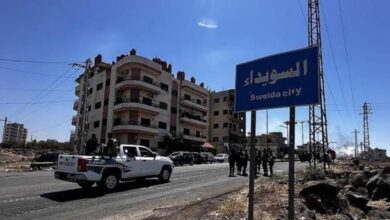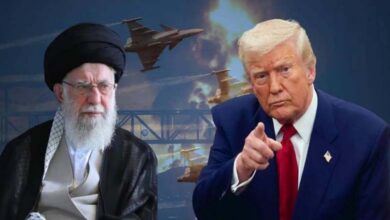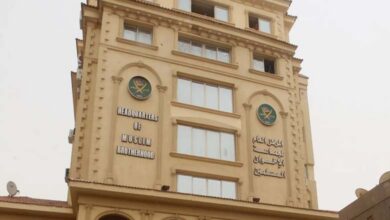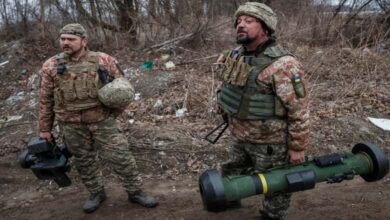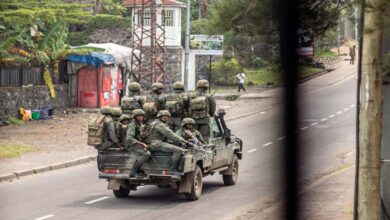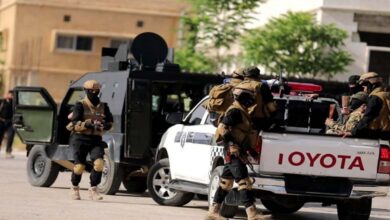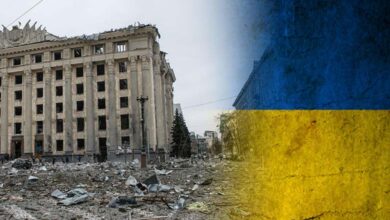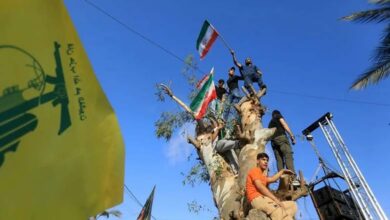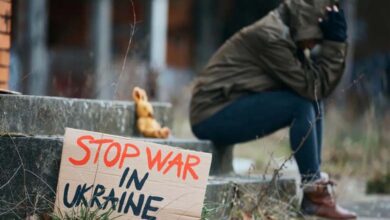New Details on Haniyeh’s Assassination: What is the Involvement of Mossad and Iran’s Revolutionary Guard?
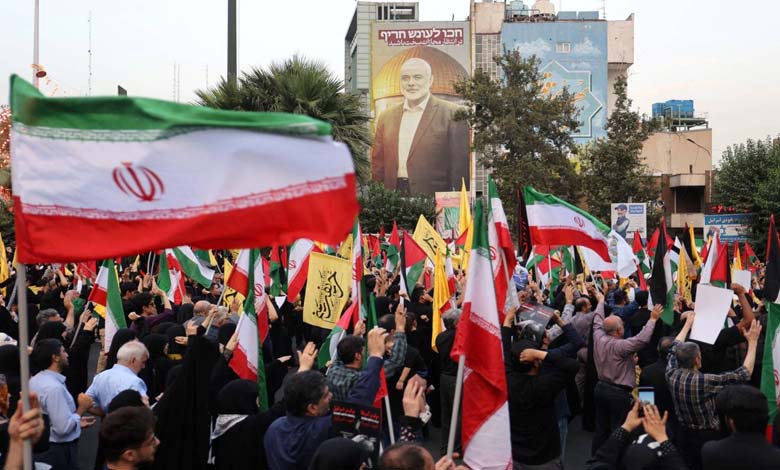
Although Hamas continues to provide a different narrative regarding the assassination of its political bureau chief, Ismail Haniyeh, The Telegraph has revealed new details, confirming some points mentioned by the New York Times.
-
Haniyeh’s Succession Tests Hamas’s Cohesion
-
From Yassin to Haniyeh… Key Hamas Leaders Targeted by Israel
The New York Times had reported that the assassination was carried out using an explosive device smuggled in and hidden about two months earlier in the guest house where Haniyeh was known to stay during his visit to Tehran.
This version was denied by Khaled al-Qudumi, Hamas representative in Iran, who said on Friday that it was “clear from the state of the location after the attack and the condition of Ismail Haniyeh‘s body that the targeting was carried out by an aerial projectile, whether a missile or a shell.”
-
Who is the leader Ziyad al-Nakhalah, companion of Haniyeh before his death in Iran?
-
Tough-Talking Haniyeh Was Seen as the More Moderate Face of Hamas
He clarified that the New York Times narrative is “contradicted by testimonies and facts on the ground,” stressing that “the aim of these narratives and statements is to absolve Israel of its direct responsibility to contain the consequences of the crime and the responses to it.”
New Details
However, The Telegraph revealed new details on Saturday about the operation, stating that the Israeli intelligence agency (Mossad) had hired Iranian security agents to plant explosives in three separate rooms in a building where a Hamas leader was staying.
The original plan was to assassinate Ismail Haniyeh, the head of Hamas‘ political bureau, last May during his attendance at the funeral of former Iranian president Ibrahim Raisi.
-
Ismail Haniyeh Renews His Rejection of Excluding Hamas from Any Settlement Regardent Gaza’s Future
-
Ismail Haniyeh Renews His Rejection of Excluding Hamas from Any Settlement Regardent Gaza’s Future
But the operation was not carried out due to large crowds inside the building and the risk of failure, two Iranian officials told The Telegraph.
Instead, the agents placed explosive devices in three rooms at the guest house of the Iranian Revolutionary Guard in northern Tehran, where Haniyeh might stay.
The two officials, who have access to surveillance footage from the building, said the agents were seen moving stealthily as they entered and exited multiple rooms within minutes.
-
Israel arrests Ismail Haniyeh’s sister to pressure in the prisoner swap deal
-
Haniyeh threatens Israel with a prolonged battle in Gaza
According to the British newspaper, the agents sneaked out of the country, but their source remained in Iran. At 2 a.m. on Wednesday, they detonated the room where Haniyeh was staying from outside.
The explosion killed Haniyeh, who was in Tehran to attend the inauguration of President Masoud Bazrshkian.
It is believed that Mossad, led by its chief David Barnea, recruited agents from the Ansar al-Mahdi protection unit in Tehran.
The Telegraph quoted an Iranian Revolutionary Guard official as saying: “They are now sure that Mossad hired agents from the Ansar al-Mahdi protection unit,” referring to the unit responsible for the safety of senior officials.
He added: “After further investigations, additional explosive devices were found in two other rooms.”
What is the Role of the Revolutionary Guard?
A second official from the elite military forces of the Iranian Revolutionary Guard told The Telegraph: “This is an embarrassment for Iran and a major security breach,” confirming the formation of a task force to present the assassination as something other than a security breach.
-
Iran seeks to spread chaos with the help of Nasrallah and Haniyeh – Details
-
Should Israel Be Wary of Stage Qatar Gives Haniyeh, As Confrontation With Hamas Enters Its 8th Day?
He added: “Everyone is still wondering how this happened, I can’t understand it. There must be something higher up in the hierarchy that no one knows about.”
The first official told The Telegraph that there is now an internal blame game within the Iranian Revolutionary Guard, with different factions accusing each other of failure.
Ismail Qaani, commander of the Qods Force of the Iranian Revolutionary Guard, said the breach “humiliated everyone.”
The Iranian official added that “the supreme leader has summoned all the leaders multiple times over the past two days and wants answers (…) for him, addressing the security breach is now more important than seeking revenge.”
-
New York Times Reveals: Iranian Supreme Leader Ordered Direct Strike on Israel
-
Israel Officially Announces the Killing of al-Qassam Leader, Hamas Denies
The Telegraph has learned that the Iranian Revolutionary Guard is currently assessing its options for retaliation, considering a direct strike on Tel Aviv as a major consideration, possibly involving Hezbollah and other Iranian agents.
The assassination of Haniyeh in Tehran has intensified concerns about Israel’s influence within Iran.
Ali Younesi, former Iranian intelligence minister, expressed his concerns in a 2020 interview, saying: “All officials in Tehran should fear for their lives.”
He added: “If Israel has not yet targeted the political authorities in Iran, it is because they have not chosen to do so (…) this negligence by Mossad has allowed it to repeatedly strike officials in Tehran and openly threaten them.”
Intentional Coincidence
Haniyeh‘s assassination also coincided with Bazrshkian’s first day in office. During his campaign, he had distanced himself from Tehran’s previous provocative policies and promised to restore Iran’s position on the international stage through dialogue.
An aide close to Bazrshkian suggested to The Telegraph that the security breach might have been a deliberate attempt by the Iranian Revolutionary Guard to damage the new president’s reputation.
-
Hamas Suspends Truce Negotiations After Assassination Attempt on Deif
-
Hamas is rebuilding its forces in Gaza by recruiting thousands of new fighters
The aide, who worked on Bazrshkian’s campaign, claimed that the Iranian Revolutionary Guard disagreed with his views on international diplomacy and other aspects of his reformist policy.
He said: “No sane mind can accept that this happened by coincidence, especially on Bazrshkian’s first day in office. He might have to go to war with Israel in his first few days in office, all because of the Iranian Revolutionary Guard.”
However, Bazrshkian’s son announced on Friday evening that Iran’s priority “is not war with Israel.”
-
Thirst crisis worsens: Water in Deir al-Balah more precious than gold
-
Gaza Tunnels: Changing the direction of wars?
Yousef Bazrshkian stated on his website: “Poverty, corruption, discrimination, inequality, factions, and wasteful political debates are the real fronts the Iranian people are fighting against in our country.”
He added that “social reforms and progress in Iran are the best counterattacks we can direct at Israel.”


